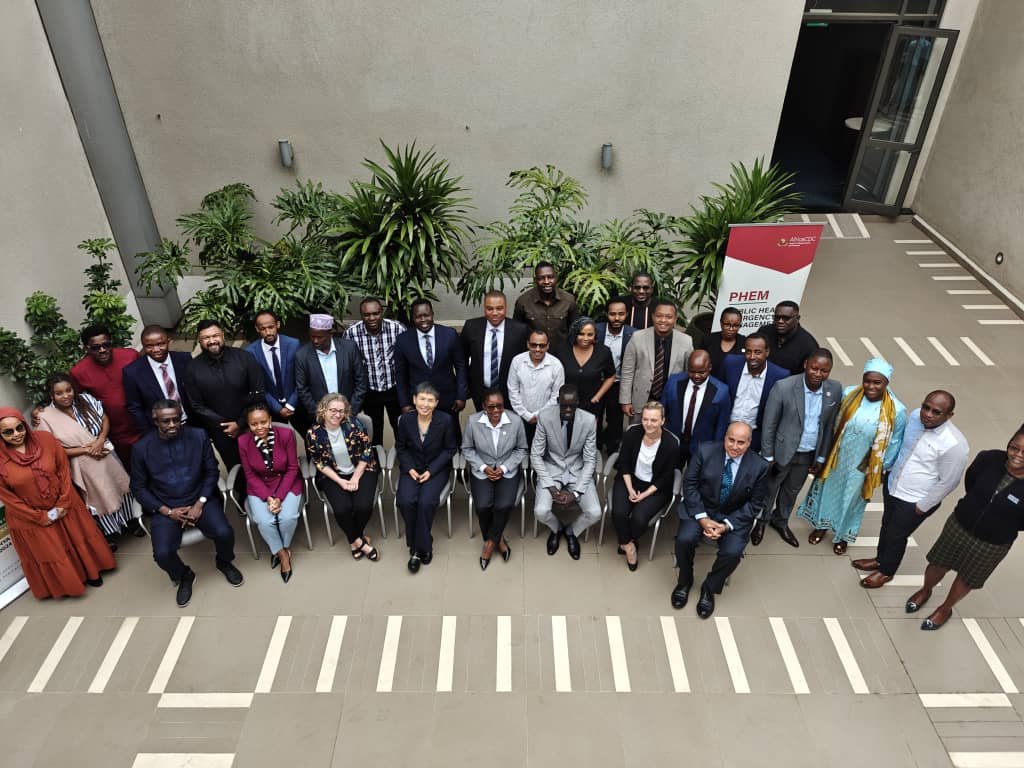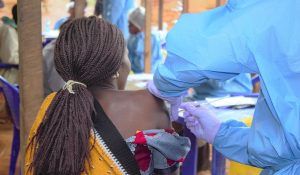Public Health Emergency Management Curriculum Review Signals Start of Second Cohort of FellowsThe Africa Centres for Disease Control and Prevention (Africa CDC) recently hosted a curriculum review workshop in Nairobi, Kenya, as it gears up for the registration of the second cohort of its Public Health Emergency Management (PHEM) Fellowship. Launched in 2023, the PHEM Fellowship is a flagship program designed to build a skilled and resilient African public health workforce capable of leading preparedness, response, and recovery efforts during public health emergencies.
Aligned with Africa CDC’s Strategic Plan (2023-2027), the fellowship plays a crucial role in strengthening public health institutions and enhancing emergency preparedness across the African Union Member States. The fellowship supports the New Public Health Order, empowering mid-career public health professionals with the tools and knowledge required to tackle public health challenges and manage high-burden diseases.
The first cohort, which began in September 2023, consisted of eight fellows from eight different Member States. Over six months, they engaged in a blended learning experience that combined online education with in-person training sessions. This structure provided them with in-depth knowledge of public health emergency operations centers (PHEOCs) and equipped them with the leadership skills necessary to implement emergency management programs in their home countries.
Among the first cohort of fellows was Dr. Rejoice Luka-Lawal from Nigeria, who experienced a significant shift in her career trajectory after completing the program. Previously the PHEOC Manager and Acting Head of the Response Division at Nigeria’s CDC, she now leads a team of more than 20 staff members. Dr. Luka-Lawal credits the fellowship with enhancing her leadership abilities, particularly in delegation and supervision. “The fellowship has taught me to delegate and supervise effectively, which allows my team to complete projects without constant interference,” she shared. She also emphasized how the experience helped her develop empathy as a leader.
Another fellow, Mesfin Wossen from Ethiopia, experienced a similar career growth path. Before the fellowship, Mesfin was the Acting Director of the Early Warning Surveillance Division at the Ethiopia Public Health Institute. Now, as a Director overseeing three divisions with more than 40 experts, he acknowledges the program for expanding his leadership and technical skills. His experience at the European Centre for Disease Prevention and Control helped him identify and address gaps in Ethiopia’s public health system. “The fellowship allowed me to gain valuable insights that I am now applying to improve our public health systems,” Mesfin said.
The success of the first cohort highlights Africa CDC’s commitment to developing a best-in-class African public health workforce. Partnerships with organizations like the WHO, the Bill & Melinda Gates Foundation, the European Centre for Disease Prevention and Control (ECDC), the African Public Health Foundation (APHF), and the UK Health Security Agency have been instrumental in supporting the fellowship and advancing Africa CDC’s broader public health security agenda.
In the second group of fellows, Africa CDC is placing a greater emphasis on mentorship, which plays a key role in ensuring the knowledge gained is applied effectively in real-world scenarios. By connecting fellows with experienced mentors, Africa CDC is fostering the next generation of public health leaders who are confident and capable of navigating complex health emergencies. Mentorship also benefits mentors by enhancing knowledge transfer and skill development across generations.
The recent curriculum review workshop, supported by the Technical Advisory Committee, offered an opportunity to reflect on the program’s progress and identify areas for improvement. As Africa CDC faces new public health challenges, the PHEM Fellowship will continue to evolve, integrating emerging technologies and strengthening international collaborations to ensure the program remains relevant and impactful.
More than just a training program, the PHEM Fellowship is a cornerstone of Africa CDC’s mission to build a resilient, self-sustaining public health workforce for Africa. As Africa CDC prepares to welcome the next cohort of fellows, it remains committed to equipping public health professionals with the skills and knowledge needed to protect the health and well-being of populations across the continent. Through initiatives like the PHEM Fellowship, Africa CDC is building a stronger, more secure future for Africa, one public health leader at a time.







